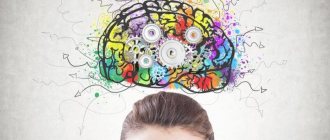Anticipation from the point of view of psychology is anticipation, the ability to predict the future. Anticipation is expressed in the fact that, on the one hand, a person can predict the onset of an event and prepare for it. On the other hand, it is the ability to calculate the outcome of an already occurring event and act depending on this outcome.
In this way, a person can calculate all or the most likely outcomes of the future.
In this article:
Who introduced the concept Examples of anticipation in everyday life Functions of anticipation How anticipation works Is it possible to develop anticipation
Who introduced the concept
Photo by Anna Tarazevich: Pexels
The term “anticipation” was introduced by Wilhelm Wundt back in 1880, and since then the study of this phenomenon has not stopped.
Looking at the definition of anticipation, it seems that this is some kind of rare ability that is possessed only by select people who have well-developed intuition and super sense. But in fact, almost every one of us has this ability and uses it every day, we just don’t notice it.
Speed reading trainer for memorizing poetry
I want to please those who have problems memorizing poems. This simulator will help in such a difficult matter. Insert the text you need to memorize into the top field, mix the letters or turn the words from right to left and start studying.
Full coverage of the bottom margin will remind you of the lines of the poem you need to learn quickly that are in the source box. No need to look at the top field.
It’s better to run your eyes over the lines with mixed up letters several times.
Only two settings are suitable for memorizing poems. Anagrams do not need to be included here.
In general, learning a poem quickly is not difficult. After all, today such wonderful methods and simulators have been developed, one of which I will tell you about in the near future. Bookmark the site so you don't miss a new simulator.
Examples of anticipation in everyday life
Anticipation accompanies us constantly. When a fencer anticipates the movement of his opponent. When a chess player calculates the strategy of his opponent, and does this not only during the game, but also before it begins. When science fiction writers describe mechanisms and systems, the invention of which will occur tens or even hundreds of years later. When scientists make discoveries that are ahead of the development of science, paradigms, laws of physics and chemistry.
Speed reading is also an example of anticipation, since the reader predicts a word by its first letters, and the entire phrase by its first words.
Anticipation - anticipation, foreknowledge
Moreover, you also constantly use anticipation. For example, when you read a work of fiction, you are not just immersed in the story, you are predicting the further development of events.
The mother, seeing that the child’s toy was taken away, already knows his reaction and all the further events that will follow this reaction.
When you are preparing for a difficult conversation, an argument in which you want to win, you “scroll through” the entire conversation even before it begins, trying to guess what your interlocutor will say and think through your answer.
Even when you meet a man, having known him for only a short time, you already assume what kind of character he has, what kind of family he comes from, what his intentions are.
Thus, each of us uses anticipation, and everything depends on how developed this skill is. Completely incorrect anticipation or its complete absence occurs only in people with severe neuroses or mental disorders, when their adequate perception of reality is impaired.
Reading without spelling
Scientists have long been studying the mechanism of reading letters, syllables, words, and even entire texts.
As it turns out, it is not at all necessary to look at every letter while reading. Even a briefly caught word is retained in the memory of the reader.
And if you remove one or two letters from each word, the text will not be distorted and will remain readable and meaningful.
Different researchers at different times conducted different experiments on this topic.
Removing some letters, adding extraneous ones, and simply shuffling them around does not cause almost any inconvenience to the reader. The eye still perceives the content.
The older a person is, the fewer letters in words he needs to understand what he reads. Sometimes even whole words can be thrown out without problems for the perception of the text.
If you leave the first and last letters in each word, then reading even with a complete mix of all the letters in the middle of the word will not bring any noticeable inconvenience.
You may not even notice that something has changed in some words.
It is this fact that often allows schoolchildren to pass off their not entirely literate writing as high-quality work. If the teacher has a highly developed perception of texts “not by letters,” then he may not even notice that letters are missing from the word.
Therefore, a teacher is the only profession whose representatives are better off not learning to read so quickly, but concentrating their attention on every letter and syllable.
Anticipation functions
Anticipation is the most important skill that helps you adapt to a changing reality. This skill appeared in us thanks to evolution, because human survival largely depended on anticipation.
There are 3 functions of anticipation:
- regulatory;
- cognitive;
- communicative.
Photo by pawel szvmanski on Unsplash
The regulatory function is expressed in the fact that, having predicted the outcome of an event, we change our actions in order to either prepare for this outcome or change it. Everything will depend on what goal we are pursuing. Therefore, anticipation largely influences the regulation of our behavior.
The cognitive function of anticipation is expressed in the fact that anticipation is, after all, a thought process. You can call it instinct, you can call it intuition, but it is the result of the activity of our brain. But whether this activity occurs in consciousness, preconscious or unconscious is another, more complex question. At the moment, it is believed that we perform part of the anticipation process consciously, that is, by making efforts. But most of it is hidden from our consciousness and happens, as it were, independently.
An interesting experiment was conducted. A man lay in a tomograph and solved problems. When the decision was received he had to press a button. The monitor showed his brain activity while solving the problem and after solving it. As it turned out, the brain was pumped to solve the problem, and after half a minute the person realized that the solution had been obtained. That is, the brain has already finished working, but the answer took shape in the mind after a fairly long period of time.
Photo by Mikhail Nilov: Pexels
The communicative function of anticipation is expressed in the fact that it helps you:
- make assumptions about the identity of a particular person - this is how you manage to find contact with a stranger;
- conduct a dialogue thanks to the ability to anticipate the interlocutor’s answer - if we didn’t know how to do this, there would be pauses of several minutes between people’s remarks;
- to find your way in an unfamiliar environment - you can guess how to behave in this place and with these people.
Reading text with jumbled letters
It is impossible to read texts where the letters are rearranged slowly, as the brain will be overexerted. This method immediately forces us to examine the word as a whole, and then visually we very quickly begin to move from one word to another.
This process occurs, one might say, not entirely arbitrarily. Because the information begins to draw in, and the field of view quickly expands.
The more often you do such training, the faster your reading speed will increase. In this case, understanding the information will not suffer at all.
And even vice versa, slow reading greatly impairs the perception of information.
How does anticipation work?
Since consciousness is the highest form of reflection of reality, anticipation is defined as an advanced reflection of this very reality.
This is not fortune telling on coffee grounds, but a mental activity in which several mental processes are involved.
First, anticipation is based on your experience. When you find yourself in a certain situation, the brain retrieves similar situations from memory and, thanks to them, makes up for the lack of information and makes a calculation of the possible outcomes of the event. So, a chess player, having seen the opponent’s strategy, remembers how this strategy ended the last time.
Photo by Tan Danh from Pexels
Secondly, anticipation is expressed in selectivity of perception. Being in a certain situation, the brain takes into account only those environmental signals that are significant for solving the problem.
Thirdly, anticipation is largely based on the process of imagination. Creativity, the ability to come up with the outcome of an event, is what helps us predict reality.
What is anticipation
Anticipation is a person’s ability to foresee the present. It is usually due to shared experience. Anticipation is a generalized idea that has developed on the basis of past experience. For example, an individual sees a cat and is sure that it is a cat, because the idea of a cat has already arisen in his head.
The meaning of the word anticipate was proposed and formulated by Epicurus. It is divided into anticipation of the result and anticipation of events. In the first case, the word goal is usually used. In the second case, we are talking about predicting the future.
Is it possible to develop anticipation?
Each of us has anticipation, but each of us develops this ability differently. This is not an innate ability, and you can easily develop it in yourself.
The following may help:
- learn speed reading - the ability to guess a word from several letters, and a phrase from several words, helps to develop anticipation;
- read texts with missing words, and dialogues with missing lines, and try to understand the meaning;
- read sayings and proverbs in which the words have been swapped;
- try to guess the meaning and plan of the article by its title or abstract;
- play association - try to remember a set of words and reproduce it;
Photo by Polina Kovaleva: Pexels
- play “Snowball” - when one person talks about himself, the second about the first and about himself, and so on - memory training helps improve anticipation;
- think about how your friend will answer a question, then actually let him answer and make sure you guessed correctly.
Even as you develop speed reading and memorization abilities, you improve your overall ability to anticipate. The above exercises and games change your way of thinking, “pump up” the necessary skills, train your brain, which will apply the acquired skills in real life.
Treatment
To correct speech disorders during clattering, it is necessary to create a work plan with a speech therapist. Therapy should be aimed at solving problems with tempo, rhythm of speech, and developing mental functions. During the treatment process, the child learns to formulate and express thoughts logically, consistently, and build semantic structures. At the same time, patients are engaged in the development of phonemic hearing, train the articulatory apparatus, and eliminate defects in sound pronunciation.
The speech therapist is recommended to organize the course of classes as follows:
- Speech tasks are pronounced at a slow pace. You can use reflected (following the teacher) or conjugate (simultaneous) repetition. Phrases and words are spoken slowly and clearly. It is recommended to set the desired speech rhythm at the beginning of the lesson and stick to it exactly; you can use soft music.
- Work is being done on emotionality and expressiveness of speech. Speech therapists ask the child to pronounce one phrase with different emotions, in a whisper, loudly, etc.
- Practice your ability to express your thoughts correctly. It is recommended to memorize poems, compose stories based on pictures, conduct dialogues, and retell what you read or heard.
- Training the skill of planning a statement. First, the child pronounces a phrase, a few sentences to himself, then out loud.
- Include articulation and breathing exercises in the lesson to form legible, intelligible speech. This technique is also useful for polternes (stumbling). For classes with schoolchildren, choose breathing exercises according to Strelnikova.
- To consolidate the purity of pronunciation of sounds, arrange them and correct them if necessary.
- Work with schoolchildren on dyslexia, dysgraphia, and penmanship.
Developing a sense of tempo
Goal: to teach to distinguish, reproduce, characterize tempo based on tactile-kinesthetic, visual, and auditory sensations.
"Mouse and Cat"
An adult shows the children how easily and quickly a mouse runs on its toes, and a cat slowly sneaks behind it. The movements are performed in a circle to the sound of a tambourine. For frequent blows - quickly, like a mouse, for rare blows - slowly, calmly, like a cat.
"Fists - palms"
An adult reads a poem, and children perform hand movements at the right pace:
Anyone has two fists, one knocks lightly on the other: Knock - knock, knock - knock. Well, the palms don’t lag behind, they beat them cheerfully: Clap - clap, clap - clap. The fists beat faster, how hard they try: Knock - knock - knock, knock - knock - knock, And the palms are just there, scattering: Clap - clap - clap, clap - clap - clap.
Global cycle of cognition
Let us make the assumption that there is absolute knowledge about the World around us (let us immediately note that the term “absolute knowledge” is equivalent to the term “World Project”). If knowledge has a limit, then an asymptotic approach to it is inevitable, as the capabilities of the non-utilitarian Observer to transform the World will become more and more limitless, while each rational cycle will be less and less filled with new knowledge. From cycle to cycle the process of cognition will begin to freeze, which contradicts the postulate about its acceleration. However, if we expand the statement “cognition is cyclical and accelerates” beyond the time frame of our Universe, then the contradiction will be removed: the life cycle of the Universe becomes only a beat of some more global cycle of knowledge. Like that:
The global cycle cycle consists of three stages, each of which ends with its own phase transition:
- geochemical evolution – ends with the birth of Life
- the evolution of the biological Observer ends with its transformation into a non-utilitarian Observer
- the evolution of the non-utilitarian Observer ends with the birth of God and from him a new World.
Utilitarian knowledge will not disappear at the third stage of evolution, but its share in the total volume of knowledge will consistently decrease to a microscopic level. The non-utilitarian Observer will continue to spin the same rational cycle of cognition (cycle 3), but with one important nuance: in it, the act of “converting new knowledge into resources” will be gradually replaced by the act of “converting new knowledge into action.”
As knowledge strives towards the asymptotic limit - absolute knowledge, the Observer will transform into God. The perfection achieved by the Observer in the knowledge of the Universe is partly similar to that which a species achieves in the knowledge of the ecological niche it occupies, if it is stable and not dynamic. Fortunately, according to physicists, our Universe is stable - its laws are unchanged with respect to time, space, and more (in physics this property is called “symmetries”).
In the global cycle paradigm, the purpose of Life is to form a trajectory from inanimate matter to God. God - He is the result of the future evolution of Man, if he leaks through the phase barrier. The depth of his knowledge is incommensurate with ours; accordingly, the reliability and depth of the forecast within the framework of the space-time scale we use are infinite. He will have the opportunity to evaluate the quality of the completed project in order to make changes to the project of the next World, which will replace the one that has grown old and decrepit from accumulated entropy.
So that cognition is not interrupted, the project will provide for the emergence of a new, improved version of the Observer, and the arrival of new Prophets, bringing to the next “Man” a message from God the Creator - a call for another ascent to God (overcoming his 2nd phase barrier). If overcoming the 1st phase barrier is unconditionally included in the project, then the 2nd phase transition is performed by a Subject endowed with consciousness and free will. God calls him to the future, while biological instincts constantly turn back to the biological past. Overcoming the barrier is impossible without an internal revolution - the suppression of the power of biological instincts over the Mind. This is the mission of Man - to make a phase leap from a utilitarian Observer to a non-utilitarian one, so that the evolutionary trajectory from Life to God is not interrupted. And this transition in its own way is equivalent to the end of the World as we know it - the “death” of biological Man.
The transition will have to be made, despite any excuses. Evolution does not know dead ends: it either breaks them with the forehead of the one who bumped into it, or simply annihilates the bronzed plug, so that no one will understand how and why. The blood, sweat and tears of natural selection were not shed so that we could dangle our legs and enjoy its results.










